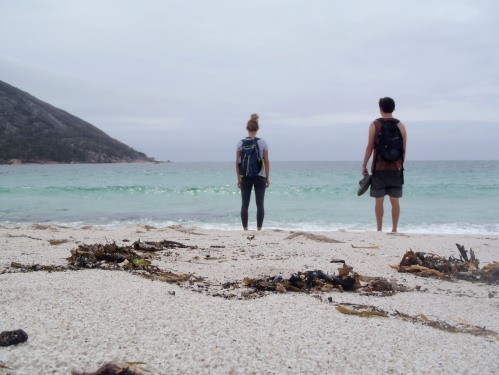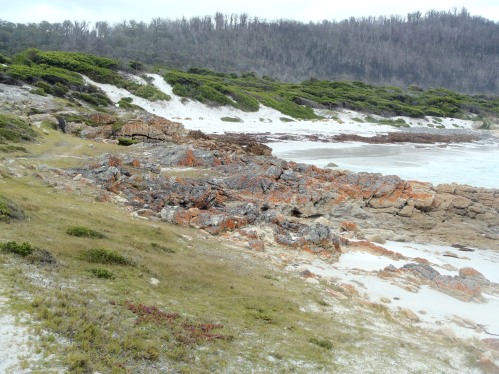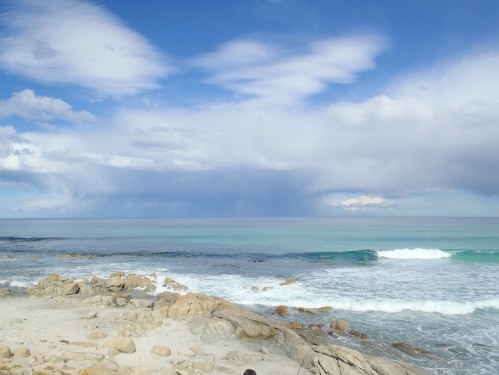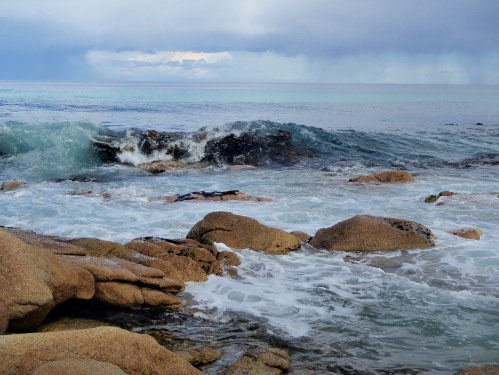Places have a way of changing history.
200 years ago, the chalice-shaped inlet of Wineglass Bay oozed with the blood of butchered whales, turning the peaceful waters into a glass of Merlot and invoking its descriptive name.

But today, as tourism draws ever-increasing numbers to Tasmania’s Freycinet National Park, this gruesome truth has been swapped with a more romantic story. Modern visitors are awed by the view from Wineglass Lookout, and assured that the pristine stretch of shoreline is merely titled after its elegant, natural shape.

Considered one of the world’s top 10 beaches, Wineglass is a haven. Regardless of how many tourists crowd the platform overlooking its milk-white sands, the beach creates an eternal sense of discovery. To trek down and strip off your socks is to reenact the original exploration by French seafarer, Nicholas Baudin.


And watching vigilantly over every person and plant are the Hazards. These five mountainous brothers protect Wineglass from the population of nearby Coles Bay, presenting a rocky obstacle for hikers and day-trippers.

Declared a national park in 1916, Freycinet is one of the first federally-protected wildlife regions in Tasmania. Australia’s endemic creatures haunt its underbrush: wallabies, striped skinks and venomous tiger snakes, rosellas and oystercatchers and kookaburras. Dolphins and tentative Humpbacks ride the waves. Perhaps they remember Wineglass’ past better than we do?

At Friendly Beaches, the sand squeaks in surprise at my body weight. I am continually caught by the distinctive colors of this shoreline: the fervent reds of the lichen, the Kelly-green turf grass, the pale granules beneath my feet. Though initial European explorers described Aboriginal fires along the coast, it is now the bright orange moss that inspires the same flaming description.

My boyfriend and I like to come here after work, to stand over the red rocks and watch the tide wash around our ankles. When the sun hits the water at just the right angle, the sea glitters with strips of turquoise and sapphire. Yet the weather is a fickle lover, ready at any moment to scorn our presence. Give her ten minutes, and heavy clouds flood the sky. The water, once again, becomes a vast sheet of grey.


Four months ago, I wrote “This is the closest I’ve ever lived to the ocean.” The distance between our bedroom and the South Australian coast could be measured in a 30-minute drive.
Now, that claim has been shattered. The distance between our kitchen and Wineglass Bay can be measured in seconds. This is my new backyard, a place that has already changed my own history.


Kelli Mutchler left a small, Midwest American town to prove that Yanks can, and do, chose alternative lifestyles. On the road for five years now, Kelli has tried news reporting and waitressing, bungy jumping and English teaching. Currently working with Burmese women refugees in Thailand, she hopes to pursue a MA in Global Development. Opportunities and scenes for international travel are encouraged on her blog, www.toomutchforwords.com.








